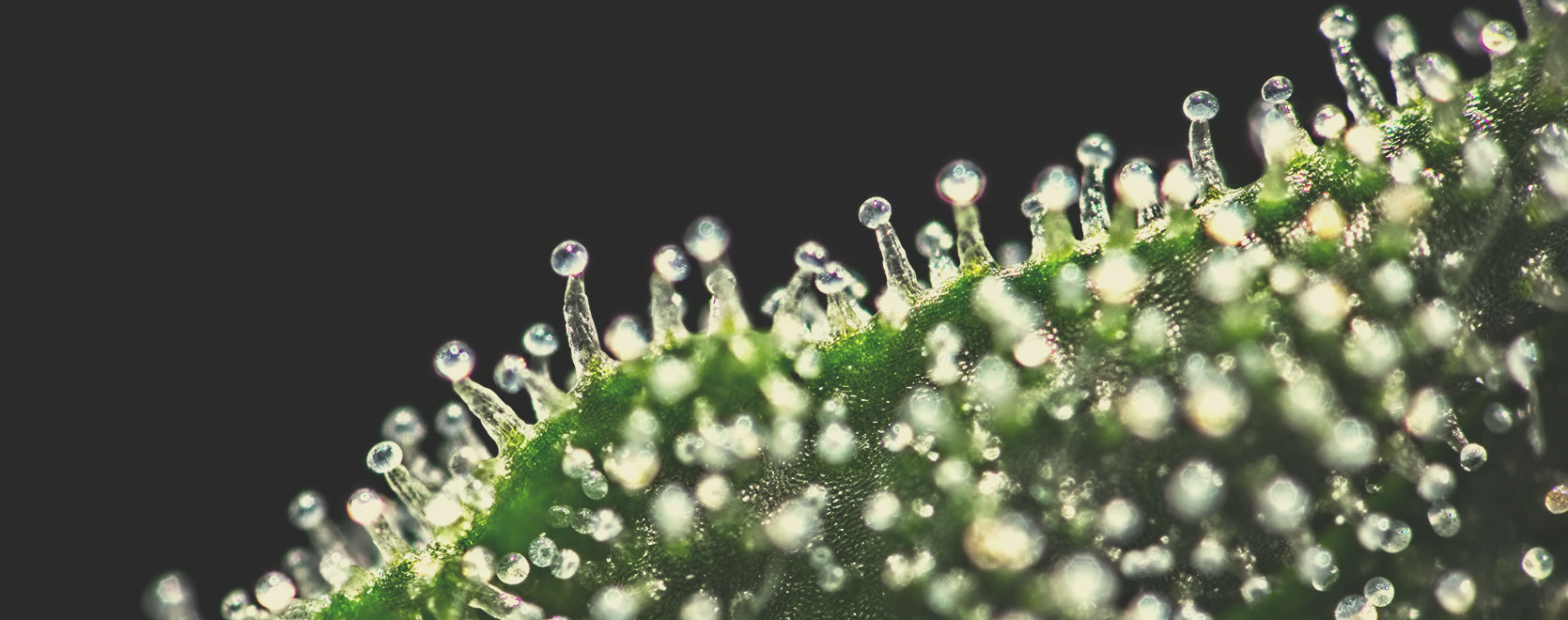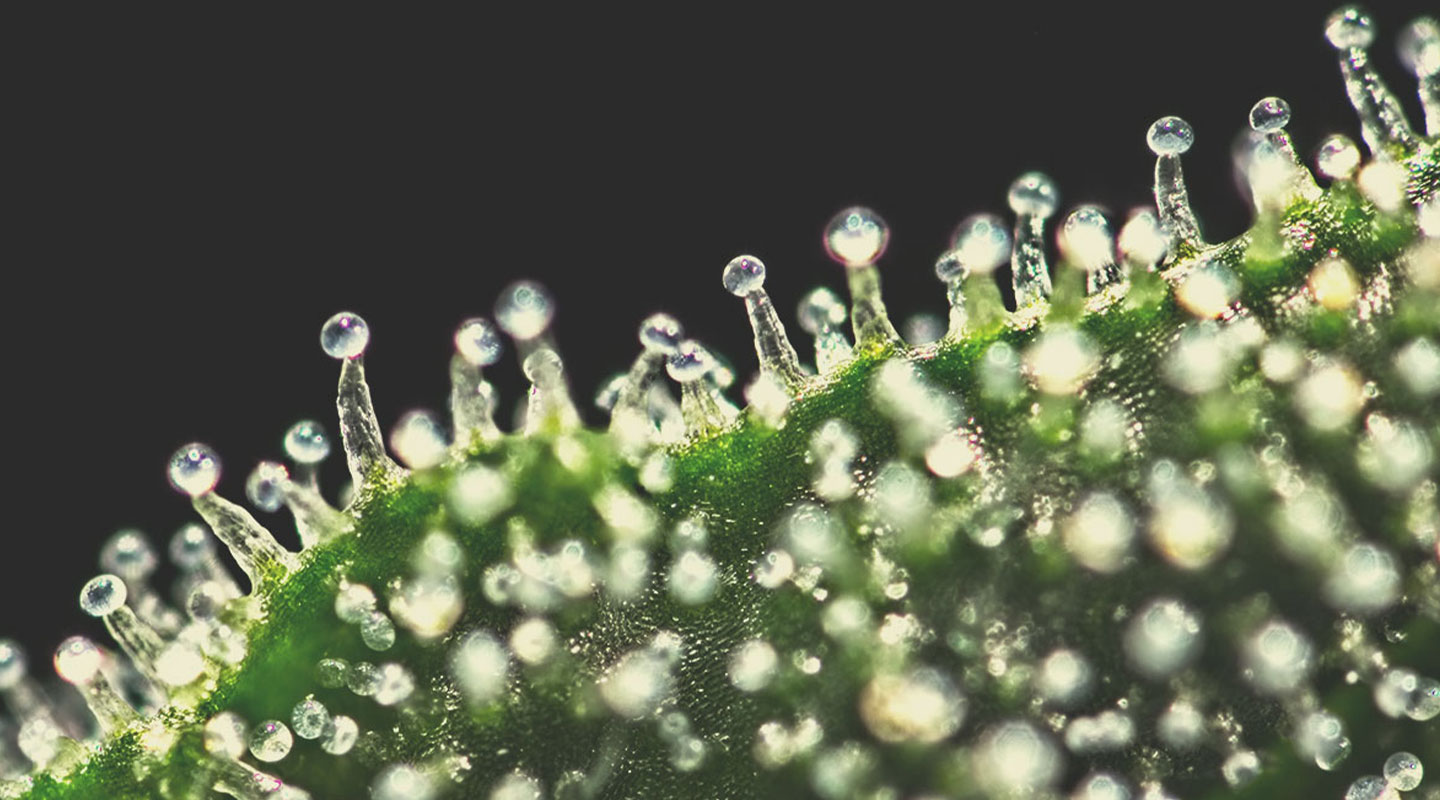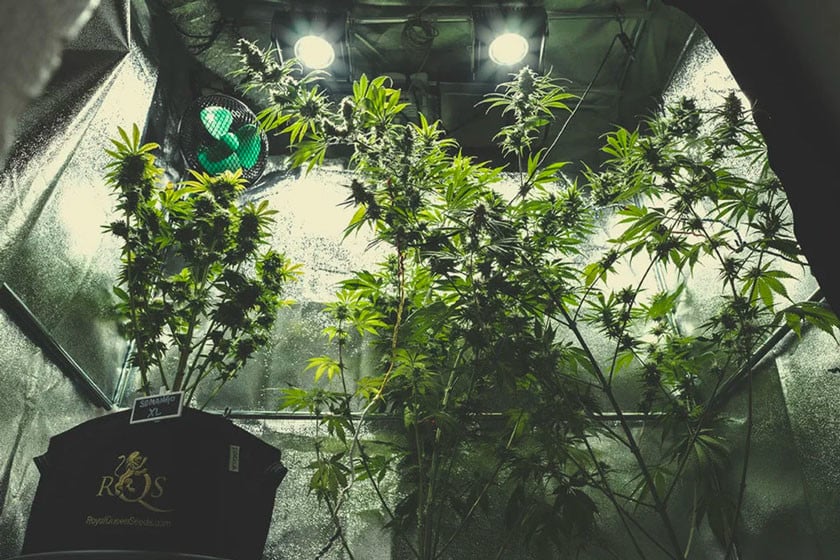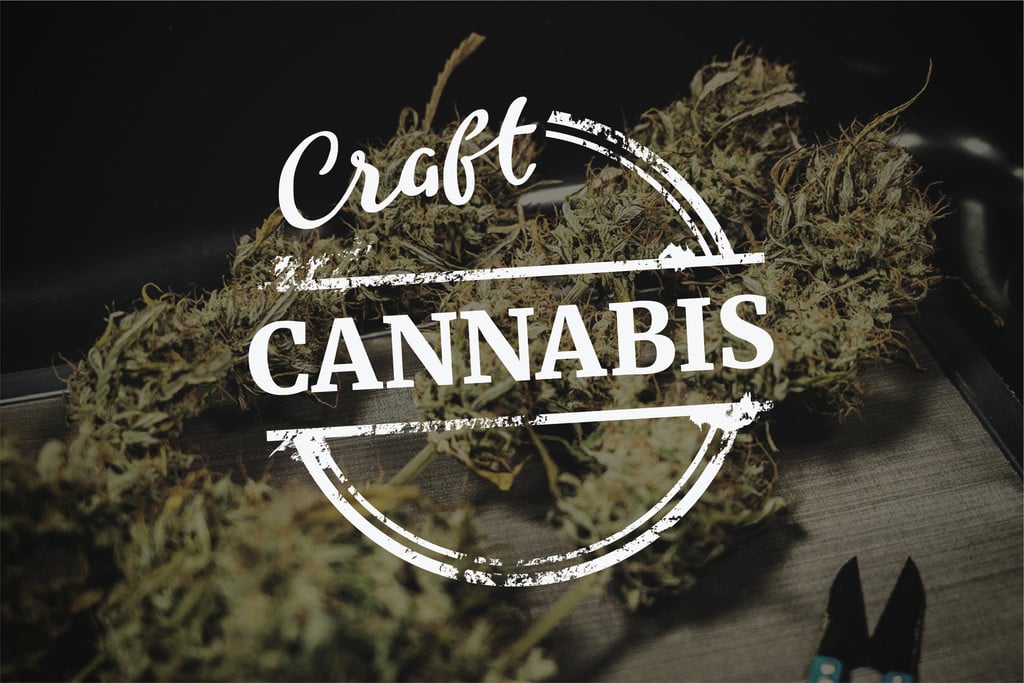.

Cannabis Potency: Is Today's Weed Really That Much Stronger?
Is today's weed really so much stronger than it was in the 1960s and 1970s? In this article, we take an in-depth look at what's true about cannabis potency, and what's not. You might be surprised to learn how much has changed over a seemingly short period.
Contents:
Potency is a huge topic in the world of cannabis. In recent years, one of the main discussions surrounding cannabis potency has focused on the difference in strength between the weed of today and the seemingly seedy, gritty stuff that the hippies of the 60s and 70s smoked. But just how different was hippie weed to the stuff you can buy from legal dispensaries, coffeeshops, and cannabis clubs today? Read on to find out.
Is Marijuana Stronger Than It Used To Be?
Yes, today’s cannabis is definitely a lot stronger than the weed your parents and grandparents were smoking. While prohibition has obviously forced the entire cannabis movement underground for decades, that hasn’t stopped cannabis geneticists and cultivators from making major advances in boosting the potency of weed.
As we’ll soon explore in more detail, the potency of cannabis has increased exceptionally (over 300%) over the last 40–50 years. Some major factors that influenced this massive increase in potency include consumer demand, new growing techniques and technologies, and more.
-
How Cannabis Potency Changed From 1995 to 2018
In September 2019, the US National Centre for Natural Products Research published a detailed review of the potency of cannabis as part of its quarterly Potency Monitoring Program. The review was conducted by the School of Pharmacy at the University of Mississippi, and analised a total of 486 cannabis specimens; 477 of the specimens were of dried and cured cannabis flower, and 9 were of more potent cannabis hash oil.
Each specimen was analised by gas chromatography (GC) for its THC potency as well as for secondary cannabinoids that contribute to its chemical profile. This includes CBD, CBC, delta-8-THC, CBN, CBG, and THCV. The study then examined the potency of these samples and compared them to the total number of samples being tested since 1995 (which included 56,949 samples of cannabis flower, 888 samples of hashish, and 468 samples of hash oil).
The study shows that the potency of cannabis has clearly been increasing since the mid-1990s. In 1995, the average THC percentage of all the samples averaged around 3.5%. By 2005, average THC concentration sat at around 7%, and by 2018, levels were at just above 15%.


-
Changing THC:CBD Ratios
Cannabis has changed drastically over the last 40 years, and not just in regard to how much THC it contains. Luckily, the legalization movement and our changing perceptions of cannabis have paved the way for studies and reports that have greatly nourished our understanding of this ancient plant.
And as we began to learn more about cannabis and the unique and complex ways in which it interacts with our bodies, we quickly understood that there’s more to weed than just THC. Hence, cannabis hasn’t just changed in the amount of THC it contains, but also its concentration of other compounds and cannabinoids, particularly CBD.
As a result, the market has seen a steady increase in cultivars expressing diverse CBD:THC ratios, particularly those with a 1:1 split.
-
A Note on Cannabis Testing and How It Might Contribute to Changing Potency
While we don’t deny that modern cannabis is much more potent than cannabis from the 70s, 80s, 90s, and 00s, we also think it’s important to point out that cannabis testing has also changed quite dramatically.
Today, cannabis is grown domestically across the US thanks to the booming legal recreational and medical markets in places like California, Colorado, Nevada, etc. This means that samples are much fresher today than they may have been 30–40 years ago when most of the world’s cannabis was grown in Colombia and Mexico. THC degrades gradually over time, and faster if exposed to air, heat, or light. Thus, it is very likely that cannabis samples from the 80s and 90s tested less potent as they were being analised months or even years after they were harvested.
What Has Caused Cannabis Potency To Increase Over Time?
At RQS, we firmly believe that cannabis potency has increased notably over the last 50 years; not only thanks to data from the US National Centre for Natural Products Research Potency Monitoring Program, and similar studies, but also because we know how much cannabis breeding and cultivation have changed since the 1960s and 1970s.
At the same time, we believe it's important to understand the variables that may affect the data being presented on the matter.
-
A Note on the “Iron Law of Prohibition”
In the countless debates surrounding cannabis potency, one thing that always comes up is the Iron Law of Prohibition. This theory, first coined by Richard Cowan in 1986, basically states that the prohibition of cannabis, or any substance for that matter, paves the way for those substances to become more potent and concentrated.
Cowan argued that prohibition was one of the biggest reasons for the increasing potency of cannabis, as it naturally encourages cannabis producers to create more potent products that fetch a higher price and help avoid detection by the authorities.
Cowan also expanded his theory to cocaine and heroin, which he says gained popularity as they were easier to smuggle than their less-potent counterparts (coca leaves and opium) and obviously fetched a higher price due to their more elaborate production and higher potency.


-
How Sinsemilla Growing Changed the Game
While Cowan’s Iron Law theory is definitely interesting, there are other factors that we believe are more likely to have affected the considerable change in cannabis potency over the last 4–5 decades.
Fifty years ago, cannabis cultivation was nothing like it is today. Most of the weed consumed by the hippies in the 1960s and 1970s would, by today’s standards, be considered pretty low quality; the buds were small, with little resin, and likely packed with a good amount of seeds, leaves, and stems. That’s because sinsemilla—seedless cannabis grown for smoking—didn’t exist back then, nor did the type of high-end indoor installations we’re used to seeing today.
Instead, most of the cannabis your parents and grandparents smoked was likely grown outdoors in Colombia, Mexico, or Morocco (which were some of the biggest cannabis-producing countries back then).
In order to facilitate shipping and avoid detection, the harvested plant material was often pressed into bricks, and was usually already several months old by the time it got into the hands of the end user. The combination of a lack of knowledge about sinsemilla growing and poor transportation undoubtedly contributed to the lower potency of the finished product that hit the streets in the US and Europe.
The Indoor Cannabis Boom
Cannabis cultivation started moving indoors in the 1980s, and the technology needed to run indoor grow rooms and tents hasn’t stopped improving since. While we don’t know who invented sinsemilla growing, we do know that it became increasingly popular from the 80s onward, and has had an immeasurable impact on the way we cultivate weed today.
Today, we’re living in the “golden age” of cannabis. Walk into a legal dispensary, coffeeshop, or cannabis club, and you’ll have access to cannabis that’s fresh, seedless, and packed with cannabinoids, terpenes, and flavonoids, as well as a wide variety of edibles, extracts, waxes, tinctures, and more.
If you’re a home grower, you now have access to thousands of strains from different seed banks (whereas a hippie grower in the 1960s likely only had bagseed to work with). You also have access to all the equipment you could ever need to set up an exceptional grow room or tent, for little more than a few hundred euro.
The nutrients used to grow cannabis have also improved dramatically, and thanks to the internet, today’s growers have access to all kinds of information to help them grow bigger, healthier, and more potent cannabis plants; a thing the hippies of the 60s and 70s could only dream of.


The Times They Are a Changin': Where We See Modern Cannabis Heading
For a long time, THC has been considered the main component of importance in cannabis. As a result, most of the cannabis strains brought onto the market over the last 30 years have been predominantly rich in this cannabinoid. However, that is beginning to change as our understanding of cannabis grows and matures.
Thanks to new research, we’re starting to rebuild our profound collective knowledge of cannabis, the compounds it contains, and the way they interact with our bodies. With that, we’re seeing a huge shift in consumer preferences toward strains that are more balanced in cannabinoids and terpenes.
We’re learning, for example, that while THC is an extremely powerful and beneficial compound, it can be overwhelming in high doses, and may be best paired with higher concentrations of secondary compounds like CBD, CBG, CBN, and more.
We’ve only started scratching the surface of cannabis knowledge. More studies into this unique plant are needed in order for us to really understand its potential, and how to best bring it into our lives, be it for recreational, holistic, or spiritual purposes. Luckily, we’re closer than ever before to uncovering the important role cannabis can play in human life.





































